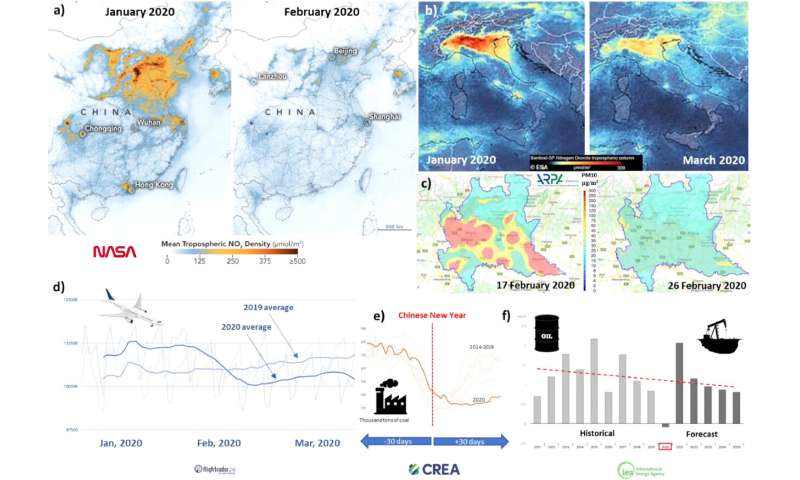Scientific evidence shows that pandemics are results of environment and wildlife exploitation

The COVID-19 pandemic affected people all over the world. On a daily basis we see changes that it has impacted to our lifestyle, our economics, well-being and also to our planet.
TSU Associate Professor Roberto Cazzolla Gatti has investigated these changes in his article Coronavirus outbreak is a symptom of Gaia's sickness that was recently published in Ecological Modelling Journal.
The article simply says that Gaia (also known as the Earth) is sick of us. We are responsible for overpopulation of the planet. The overexploitation of habitats and the huge impact we have on wildlife facilitates the sudden appearance of new dangerous sicknesses such as this coronavirus. The total worldwide lockdown also affected on the Earth. Recent researches reflect (Figure 1) that the impact of coronavirus outbreak helped to decline the atmospheric pollution and resource/energy consumption.
— In this scenario of a broad global spread of the COVID-19, modelling says that economic growth will be halved in 2020. Despite this being bad news for world affairs, it may actually be a panacea for Gaia. It might also be true, as analysts recently suggested, that decreased travelling, consumption, and energy demand will limit money and political will from climate efforts.
The scientist is making us think of revaluation of everything we've had, have now, and will have if we would like to change something to create a way more self-conscious sustainable society.
In his second recently published article entitled The pangolin's revenge: SARS-CoV-2 did not emerge from a lab but from wildlife exploitation in GAIA: Ecological Perspectives for Science and Society journal, Roberto Cazzolla Gatti investigates the other side of the coin which is the source of the current coronavirus.
The idea that the COVID-19 was created in some laboratory and escaped out of control spreads all over the world by social media. Even authoritative sources like the Nobel laureate Luc Montagnier got involved. It was also claimed that back in 2015, there were attempts to create a recombinant SARS-derived coronavirus in China. As a result, people started to believe to conspiracies and fostered paranoia.
In the paper, the TSU scientist proves that SARS-CoV-2 did not emerge from a lab but from wildlife exploitation. As it knows the world's largest of live animals is situated in the city of Wuhan in China, where numerous wild and domesticated species are sold, including bats and pangolins.
— Wet markets like those in Wuhan, where live animals, merchants, and customers crowd together in contaminated and busy roads, make it easier for viruses, like the SARS-CoV-2, to cross from one species to another one, including humans. Where dogs, cats, snakes, raccoons, genets, chickens, pigs, bats, pangolins, fish, seafood, etc. pack in small cages and are slaughtered on the streets, pathogens can find their way to exchange between wild and domesticated animals and humans.
Nevertheless, Prof. Cazzolla Gatti says that we do not have to blame animals because they are victims and executioners of human arrogance and asks an eternal question: will our species ever learn the lessons?
More information:
Cazzolla Gatti R. 2020, The pangolin’s revenge: SARS-CoV-2 did not emerge from a lab but from wildlife exploitation, GAIA: Ecological Perspectives for Science and Society, 29(2), 79-82
doi: 10.1016/j.ecolmodel.2020.109075
Cazzolla Gatti R. 2020, Coronavirus outbreak is a symptom of Gaia’s sickness, Ecological Modelling, 426, 109075
doi: 10.14512/gaia.29.2.3
Provided by Tomsk State University